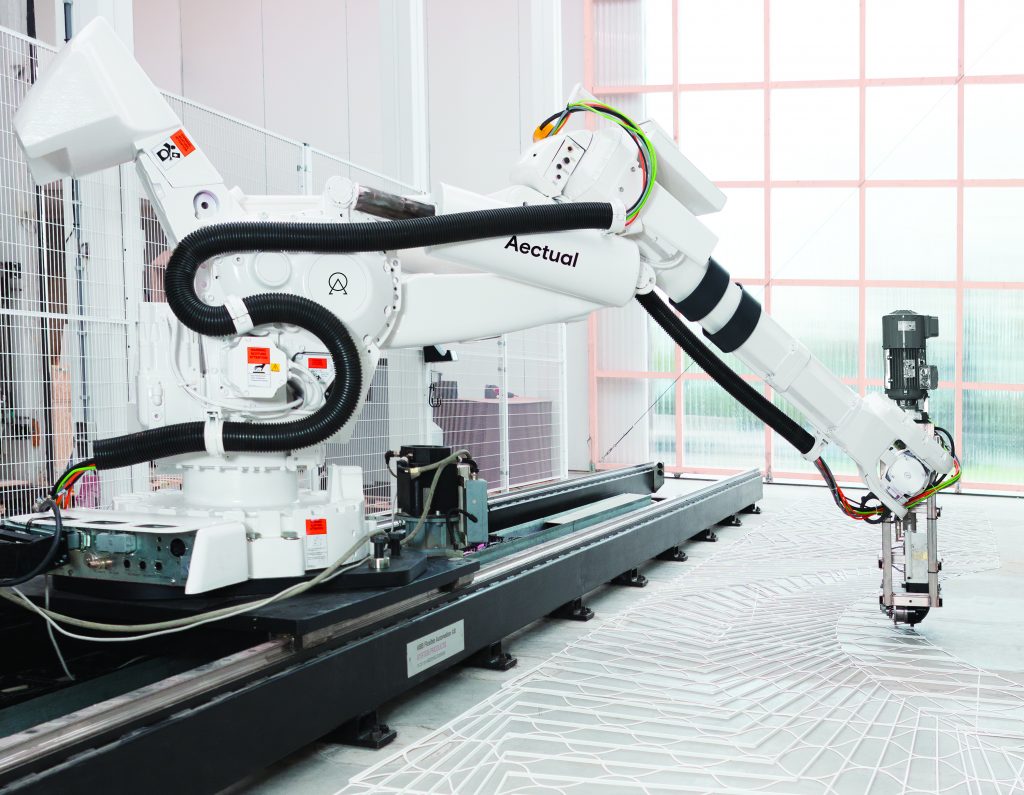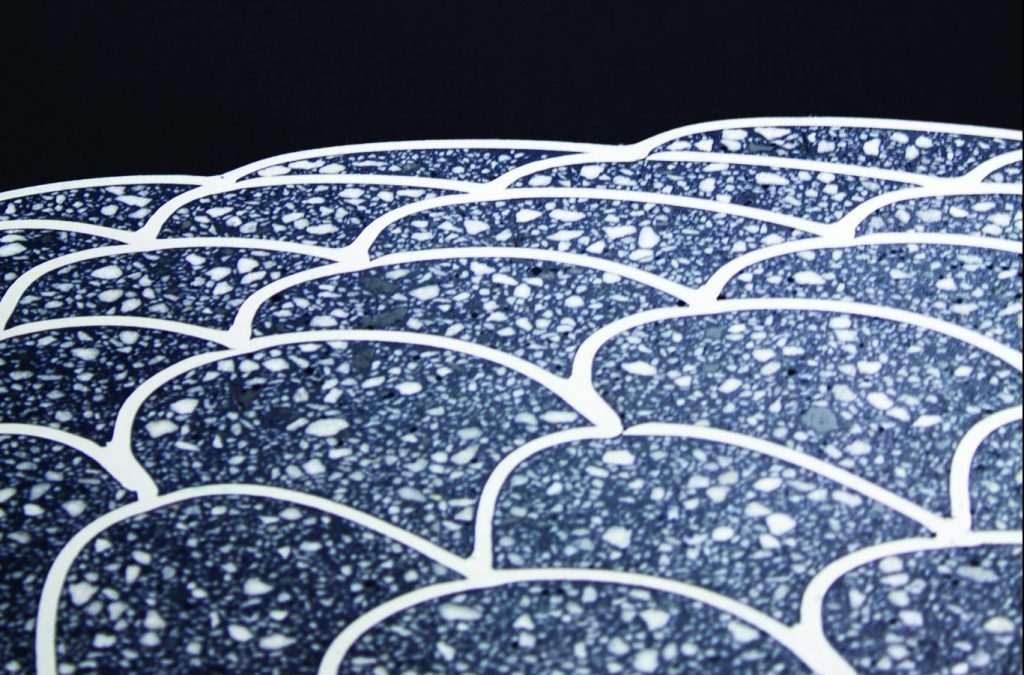Aectual, the Dutch design and construction company behind Schiphol Airport’s 3D printed floors, has received a capital injection of $1.8 million from three investors that specialize in green, sustainable projects.
The first investor, AKEF, is the Amsterdam Climate & Energy Fund that provides a revolving fund €45 million to “companies and projects that demonstrably add to energy saving, sustainable energy and energy efficiency.”
The second, DOEN Participations, has been supporting sustainability startups for over twenty years.
And the third is an anonymous investor from America.
With Aectual’s robot-powered digital production process, the company is capable of substantially reducing wastes associated with traditional construction.
 Robot. Photo via Aectual.” width=”1024″ height=”795″ srcset=”https://3dprintingindustry.com/wp-content/uploads/2017/10/Aectual-XL-3D-Printing-Robot-01-_-Ilse-Leenders–1024×795.jpg 1024w, https://3dprintingindustry.com/wp-content/uploads/2017/10/Aectual-XL-3D-Printing-Robot-01-_-Ilse-Leenders–770×598.jpg 770w, https://3dprintingindustry.com/wp-content/uploads/2017/10/Aectual-XL-3D-Printing-Robot-01-_-Ilse-Leenders–200×155.jpg 200w, https://3dprintingindustry.com/wp-content/uploads/2017/10/Aectual-XL-3D-Printing-Robot-01-_-Ilse-Leenders–500×388.jpg 500w” sizes=”(max-width: 1024px) 100vw, 1024px” />
Robot. Photo via Aectual.” width=”1024″ height=”795″ srcset=”https://3dprintingindustry.com/wp-content/uploads/2017/10/Aectual-XL-3D-Printing-Robot-01-_-Ilse-Leenders–1024×795.jpg 1024w, https://3dprintingindustry.com/wp-content/uploads/2017/10/Aectual-XL-3D-Printing-Robot-01-_-Ilse-Leenders–770×598.jpg 770w, https://3dprintingindustry.com/wp-content/uploads/2017/10/Aectual-XL-3D-Printing-Robot-01-_-Ilse-Leenders–200×155.jpg 200w, https://3dprintingindustry.com/wp-content/uploads/2017/10/Aectual-XL-3D-Printing-Robot-01-_-Ilse-Leenders–500×388.jpg 500w” sizes=”(max-width: 1024px) 100vw, 1024px” />Sustainable construction
“The construction sector needs to be made more sustainable,” states Ramon Brandt, investment manager AKEF, “Aectual has a strong mission focusing on sustainability and circulation, and is a global leader in the field of digital production with XL 3D printing technology.”
Aectual’s XL technology is powered by a robotic arm, that runs along a track. The maximum areas that can be covered by the current XL systems are 2x2x4 meters, 8x2x2m or 2x2x2m, ample size for floors, large tiles, or even wall facades (Aectual’s founders started out with the idea of 3D printing an Amsterdam canal house.)
For sustainability, Aectual XL 3D Printers used recycled, biobased materials as feedstock, developed in collaboration with Henkel. Depending on the project, material saved in construction by using XL is between 30 and 70%. Concrete products made with Aectual 3D printed molds generate up to 60% reduction in CO2 emissions.
Brandt adds, “We believe they [Aectual] can make an important contribution to CO2 reduction. With their digital production process and 3D printing technology, they deliver tailor-made solutions, in addition to the strong reduction in material use and zero-waste, the bio-plastics print materials are also 100% reusable.”

Demand for 3D printing in construction
Aectual’s XL 3D Printers and supporting design software were developed with half a million Euros in funding from the European Regional Development Fund (ERDF).
According to Aectual CEO Hans Vermeulen, “XL is on the rise worldwide and Aectual is responding to that.”
“We combine the high margins of customization with the low cost prices of industrial production […] on a global level. This requires a long-term focus of our investors, and we are proud that we have received their trust.”
Other 3D printing projects working on sustainability in construction include Terra Performa by Barcelona’s Institute for Advanced Architecture of Catalonia (IAAC), and geocement developed by Renca, a Russian material startup.
Is this an outstanding application of additive manufacturing? Make your nominations in the 2018 Industry Awards.
Want to design this year’s trophy? Protolabs is sponsoring the 2018 Industry Awards design competition. Submit your entries now.
Stay updated with all the latest investments other related news with Industry on Facebook, Twitter, and through subscription to the most widely read newsletter in the industry.
Featured image shows 3D printed Aectual Floors for Schipol Airport. Photo by Ivo Toplak/DUS architects.

Leave A Comment